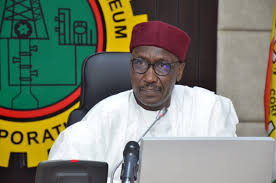What exactly is responsible for the recurrent fuel queues? Nigerians are Tired. Why hasn’t a lasting solution been found, 68 years later?

Despite technological advancements and periodic promises of solutions by the government, the sight of long lines at petrol stations remains a regular occurrence, leaving many to wonder why this problem still plagues the nation. Nigeria National Petroleum Corporation Limited (NNPCL), the country’s profit-inclined state oil company, assures the public that it has rectified the underlying causes of current fuel shortages. However, the queues persist across cities and towns throughout the land. It is disheartening that 68 years after the discovery of crude oil, citizens are still compelled to spend days and nights at fuel stations in pursuit of this essential commodity.
READ ALSO: Fuel Scarcity: Reps Urge Nigerians Against Panic Buying
Generally, the cause of product scarcity is multifaceted and complex. A confluence of factors including inconsistent government policies, corruption, mismanagement of resources, and infrastructure challenges can influence it. The issue has become a symbol of the inefficiencies and struggles embedded within the country’s energy sector, reflecting a deeper systemic problem that demands urgent attention and resolution.
See Video: Fuel Scarcity in 1994
NNPCL’s reassurances have been met with dissenting views by marketers. Public Relations Officer of the Independent Petroleum Marketers Association Of Nigeria (IPMAN), Chinedu Ukadike, said “The situation is that there is no product. Once there is a lack of supply or inadequate supply, what you will see is scarcity and queues will emerge at filling stations.” This statement as well as the reality of things at the moment has left Nigerians confused as to the transparency of NNPCL and what exactly to believe.
While the corporation claimed that the reason for the scarcity is logistics-related, some insiders say the scarcity is due to importation struggles of the product by the NNPCL.
A primary reason for the recurring fuel queues is the country’s heavy reliance on imported refined products, despite being a major oil-producing nation. Nigeria’s refineries have struggled with inefficiency, frequent breakdowns, and underperformance, leading to a shortfall in domestic refining capacity. As a result, the country depends on fuel imports, which are subject to global market fluctuations, supply chain disruptions, and foreign exchange challenges.
READ ALSO: Fuel Scarcity: Reps Demand Solution, Summon NNPCL
The government’s efforts to address this issue have often fallen short of expectations. Past administrations have initiated various measures such as fuel subsidy programs, price deregulation attempts, and refinery refurbishment projects, but these efforts have not resulted in a sustainable solution to the fuel scarcity problem. The lack of a comprehensive and long-term strategy to overhaul the energy sector has contributed to the persistence of fuel queues and associated economic disruptions.
Moreover, issues of corruption and mismanagement have further complicated the situation. Reports of product diversion, smuggling, and hoarding have been cited as causes of artificial shortages and price manipulation in the market. The lack of transparency and accountability in distributing and pricing petroleum products has eroded public trust and confidence in the government’s ability to effectively manage the energy sector.
In addition to the structural challenges, external factors such as global oil prices, geopolitical tensions, and market fluctuations also play a significant role in exacerbating fuel scarcity in Nigeria. The country’s vulnerability to external shocks and its limited capacity to absorb such shocks make it worse leaving citizens at the mercy of volatile market dynamics and supply chain disruptions.
The impact of fuel queues extends beyond mere inconvenience: it has profound economic implications for businesses, transportation systems, and daily livelihoods. Small businesses struggle with increased operating costs, transportation services face disruptions, and ordinary citizens bear the brunt of prolonged wait times and uncertainty regarding fuel availability.
READ ALSO: COP 28: Why Africa Must Accelerate Transition From Fossil Fuel to Renewable Energy
In these challenging times, there is a pressing need for a holistic approach to address the underlying issues plaguing the energy sector. This includes strategic investments in domestic refining capacity, improved infrastructure, regulatory reforms, and enhanced transparency and accountability in the management of petroleum resources.
The government must implement sustainable solutions that prioritise the long-term energy security of the nation and prioritise the welfare of its citizens. Only through concerted efforts, sound governance, and decisive actions can Nigeria finally break free from the cycle of fuel scarcity and chart a path towards a more resilient and self-sufficient energy sector.
In the quest for progress and prosperity, addressing the root causes of fuel queues must be a top priority for Nigeria as it continues its journey towards a more sustainable and inclusive future.



